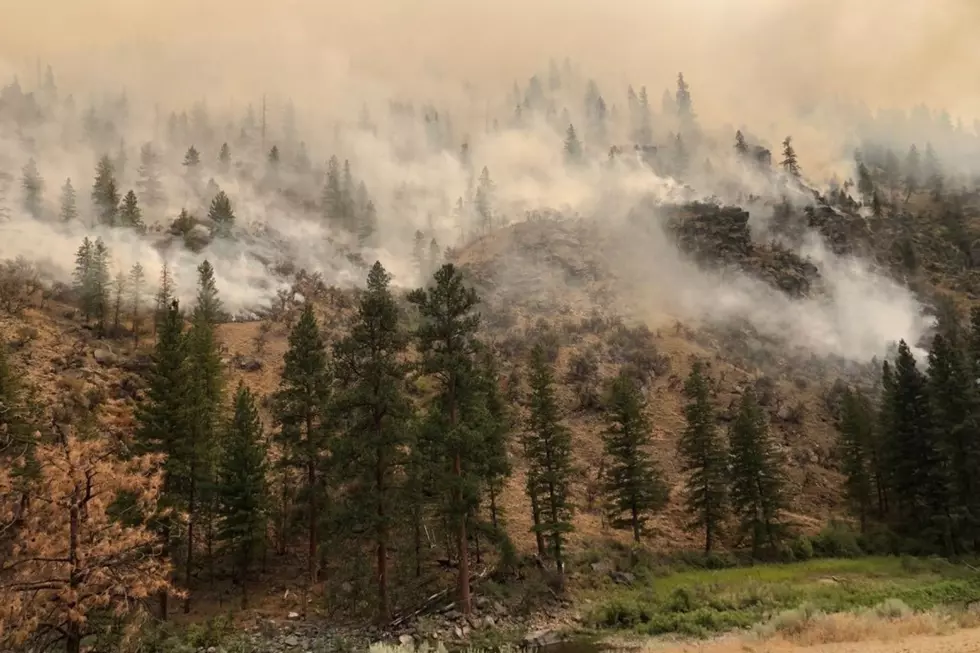
Fire Crews Across the Northwest Continue to Battle the Moose Fire
The Moose Fire burning near Salmon Idaho in the Salmon-Challis National Forest has been burning since July 17 and has consumed nearly 60,000 acres, primarily in wilderness areas.
KGVO spoke to Fire Information Officer Bobbi Filbert with Great Basin Team 2 early on Tuesday afternoon.
“The fire was started on July 17 in the afternoon,” began Filbert. “It was first reported right down in the Salmon River drainage where Moose Creek enters. They have determined that it is human-caused but it's still under investigation. (as of Tuesday) We're at 58,168 acres. We're at 23% containment and most of that containment is along the Salmon River corridor and then it kind of wraps around to the east by North Fork and then along Highway 93 As you start to move south towards Salmon (Idaho) and that's where the majority of the containment is.”
Filbert said fighting the Moose Fire is utilizing hundreds of personnel as well as aircraft and heavy equipment.
“Currently we have over 1,000 personnel in the fire,” she said. “We have 10 helicopters working on the fire. Four of those are what we call referred to as the largest is ‘heavy helicopters’ and those helicopters are able to dip and transport 700 gallons of water for one rotation where they can drop that on some hot spots on the fire.”
She said a number of fixed-wing aircraft were also dropping retardant on the fire.
“Yesterday we did have quite a few fixed-wing retardant planes flying especially just north of Salmon, in an area that we're calling our Diamond line,” she said. “That’s right along Diamond Creek where we felt some mechanical line there as a location where we want to stop the southward progression of the fire as it gets closer to that Salmon municipal watershed.”
Filbert said in addition to the heavy equipment and aircraft, the Moose Fire is also keeping multiple hand crews busy creating fire lines.
“We have 29 hand crews on the fire, and those are scattered about with a lot of that ‘boots on the ground’, work that hard work that's being done every day,” she said. “There are 59 engines that are supporting both the hand crews and the mechanical line and they're also around the Highway 93 corridor north and south of Salmon. They’re working along the river and looking at those structure assessments and preparations and what they need to do if they have to come in and implement those structure protections.”
Just after the fire started, the Moose Fire experienced a tragic accident on July 21 when a Chinook helicopter crashed killing two pilots, identified as 41-year-old Thomas Hayes of Post Falls, Idaho, and 36-year-old Jared Bird of Anchorage, Alaska.
As of this week, Filbert said the Moose Fire has cost over $13 million to fight.
Get to Know Missoula A to Z
10 Businesses That Should Open a Location in Missoula
10 Incredibly Boring Towns To Avoid in Montana
More From Mix 97.1






